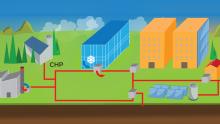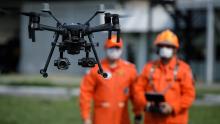How pay-per-use washing machines could clean up the manufacturing industry

With the right innovations, the circular economy can contribute to economic growth while meeting sustainability ambitions. The EU-funded ReCiPSS project demonstrates how manufacturing can achieve this by adopting product-service systems. Moving industry from linear to circular models offers new business opportunities, while minimising waste and environmental damage.









